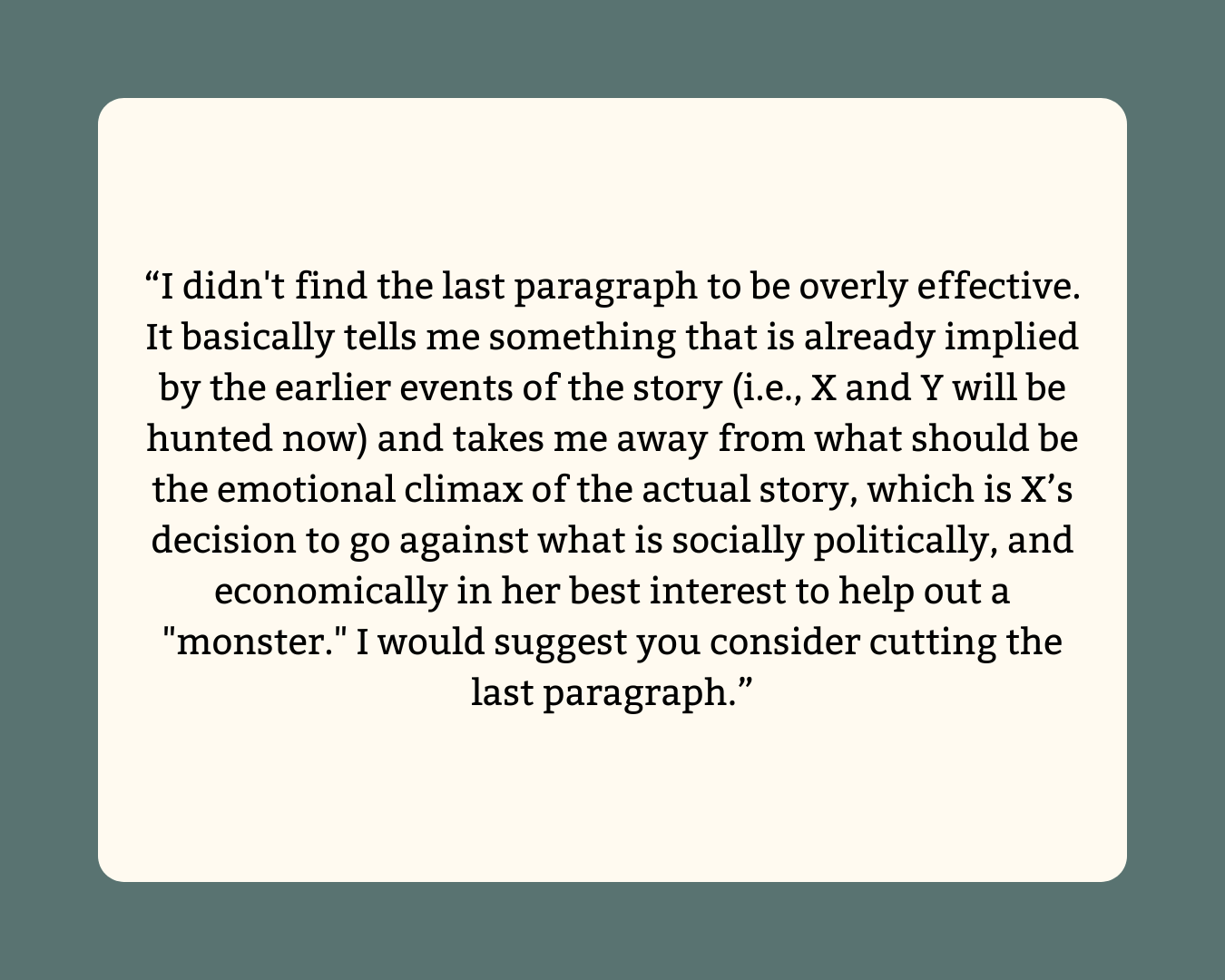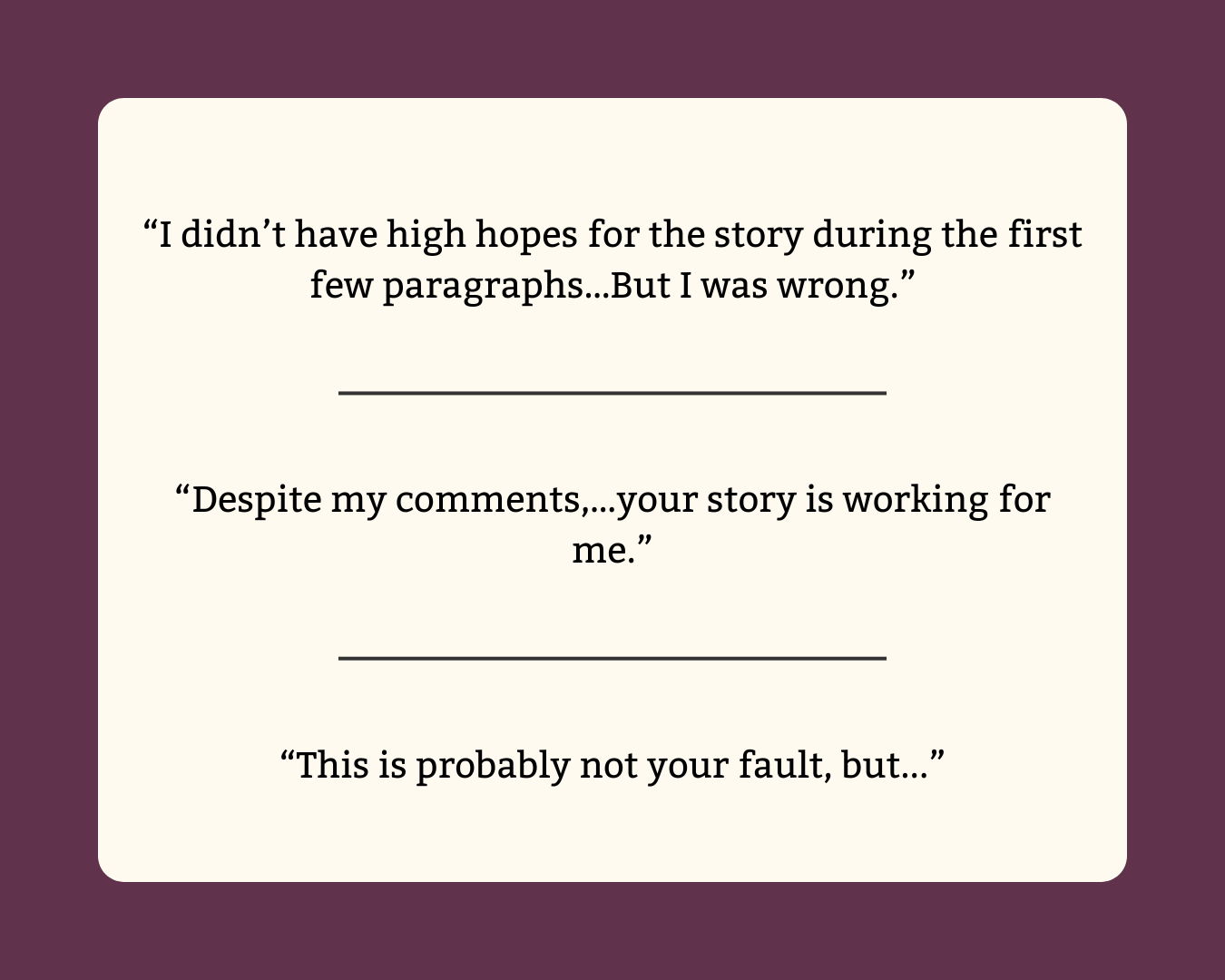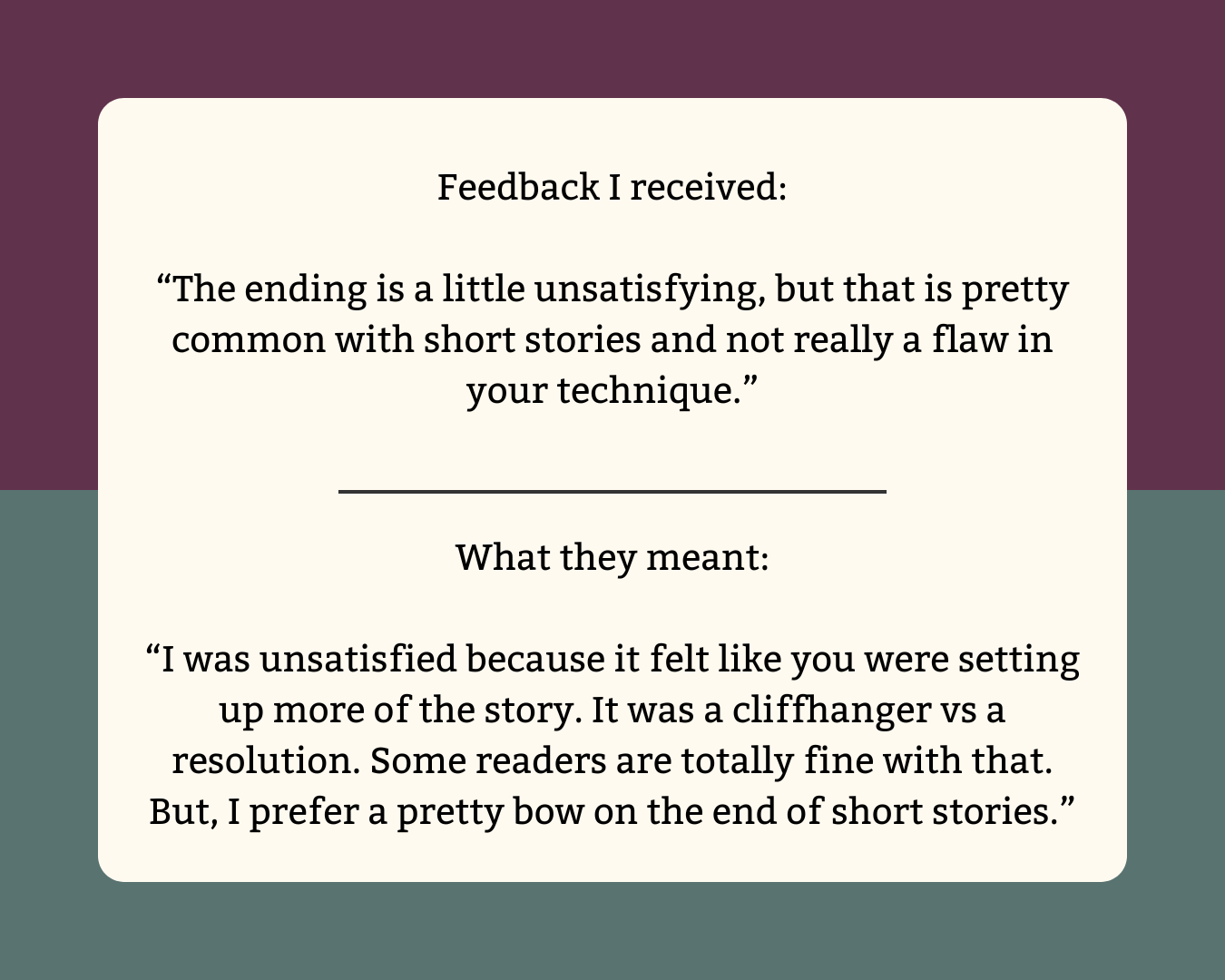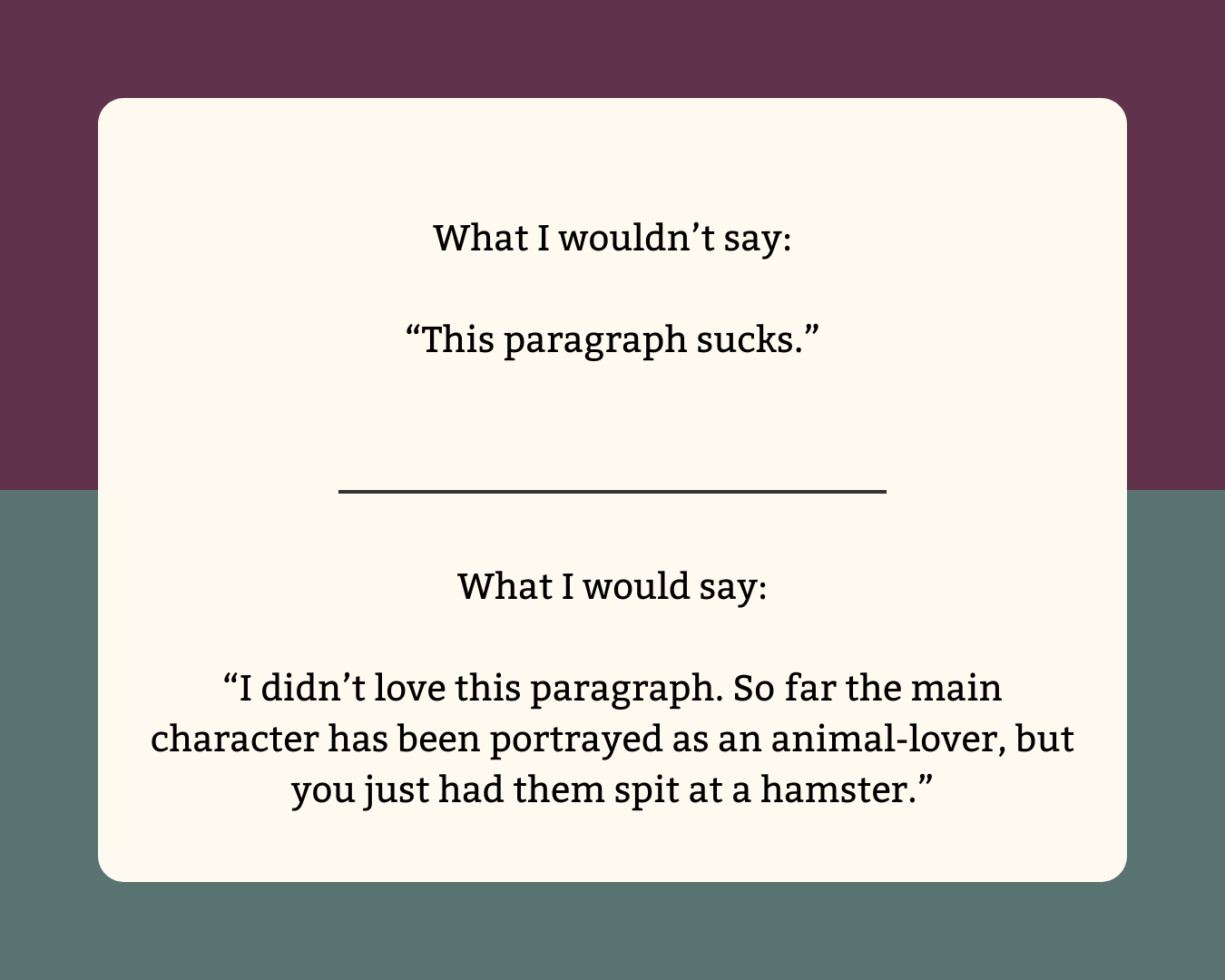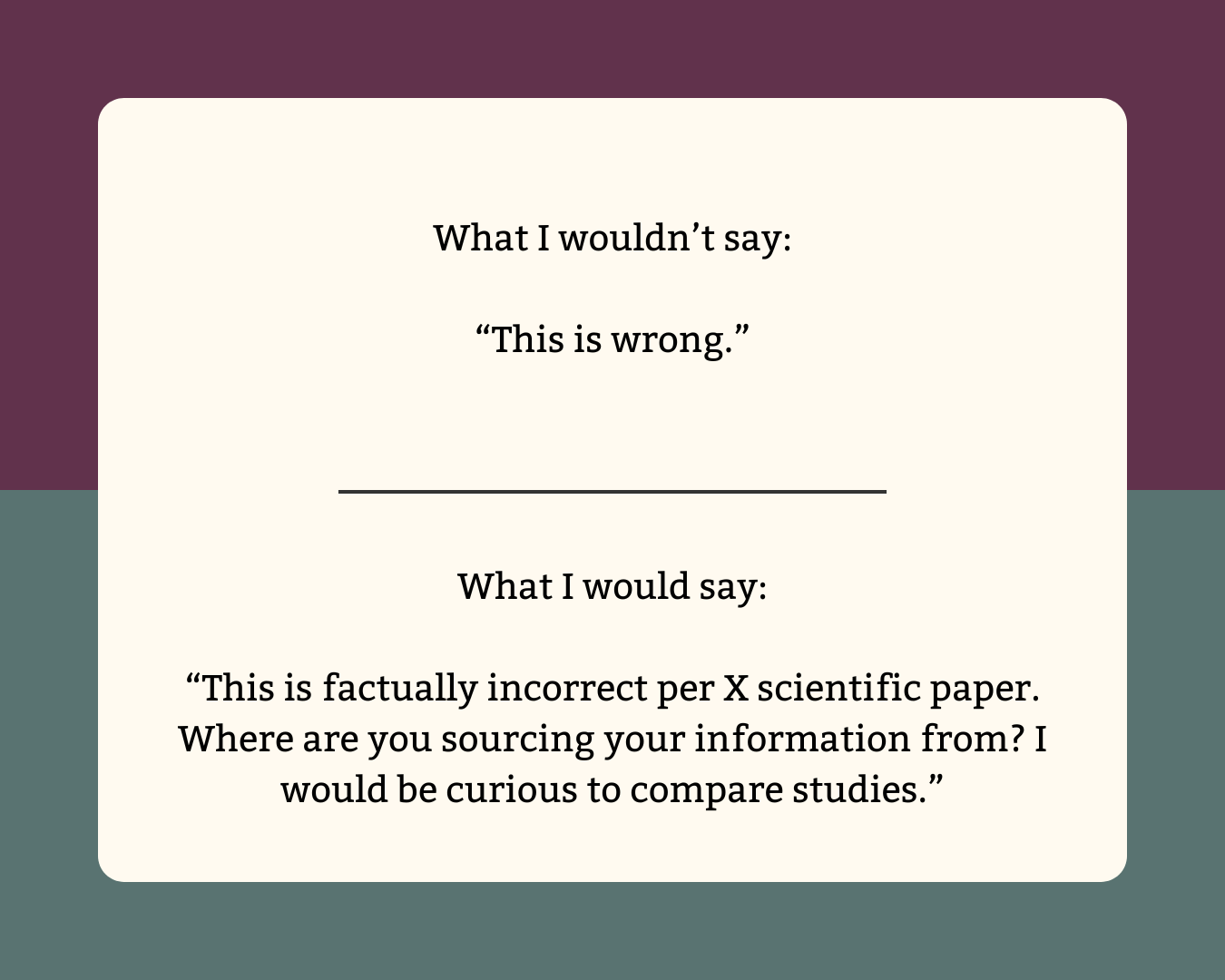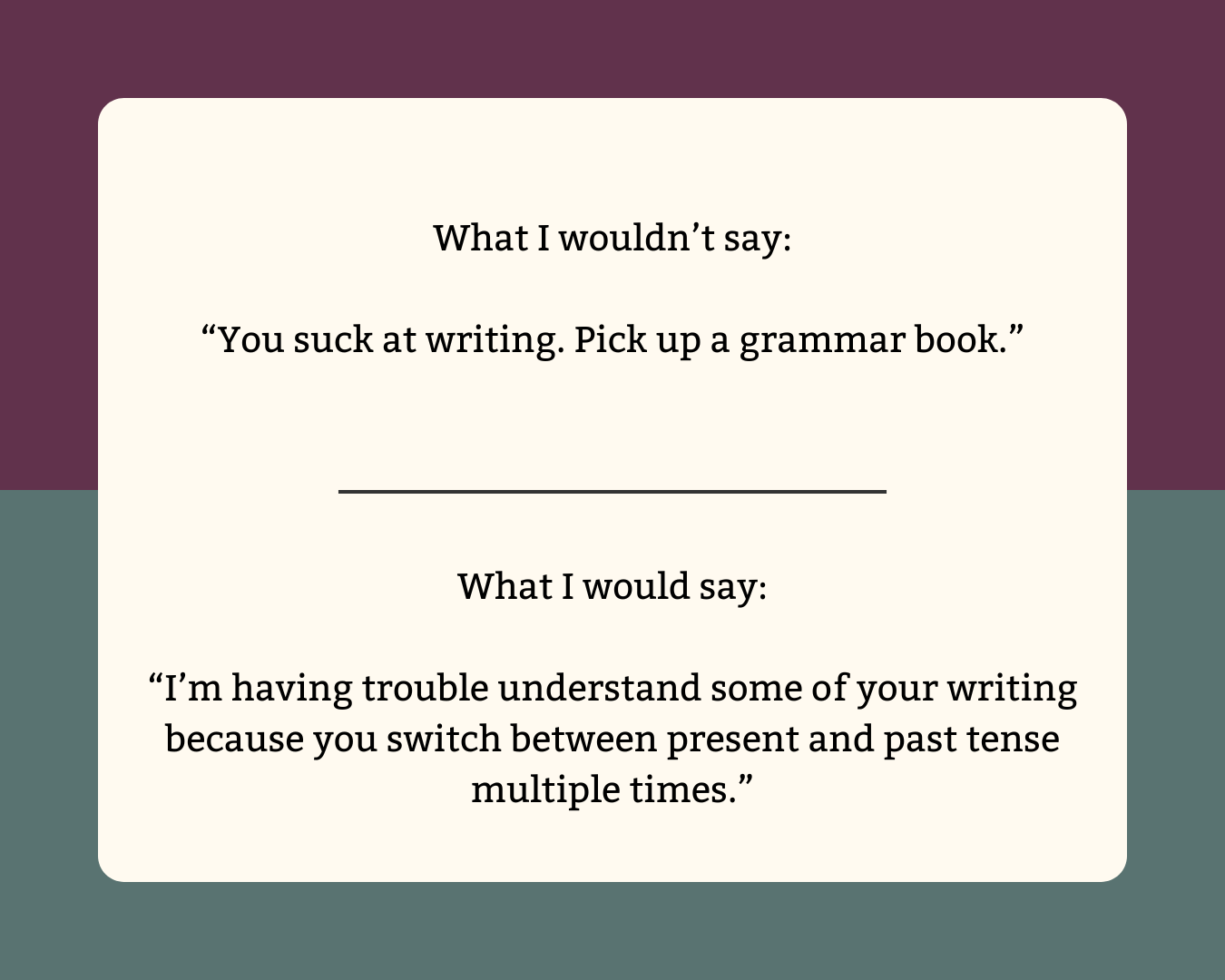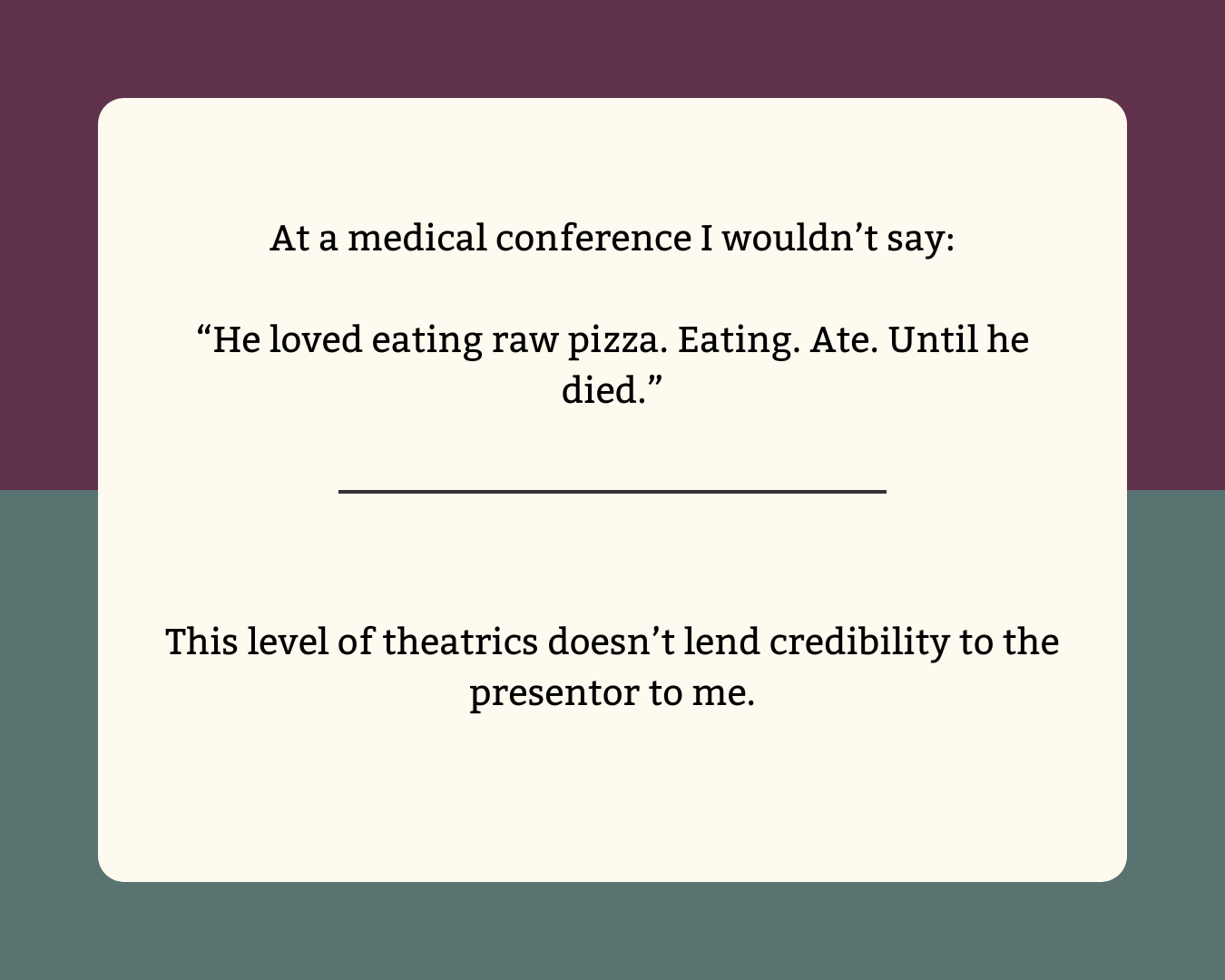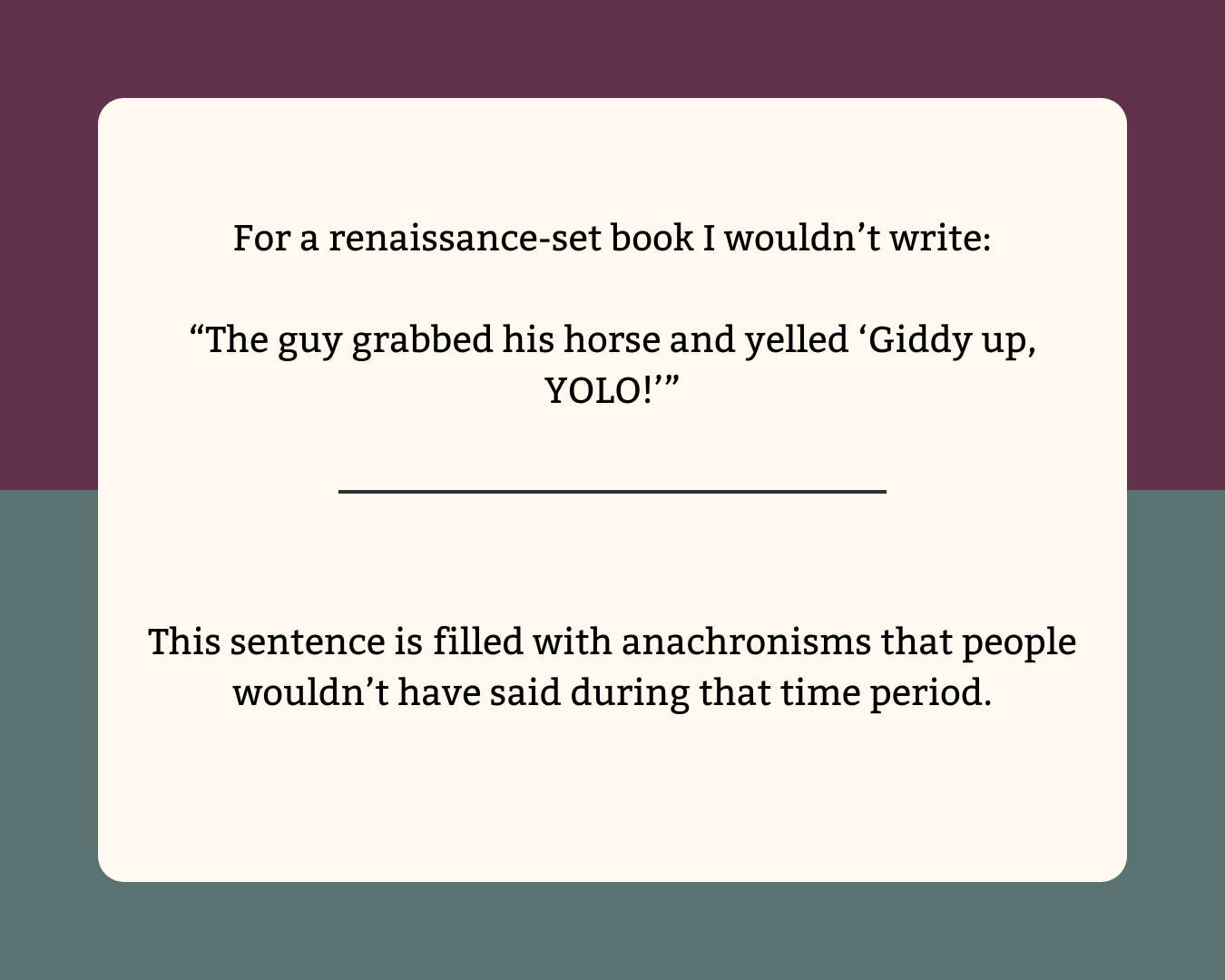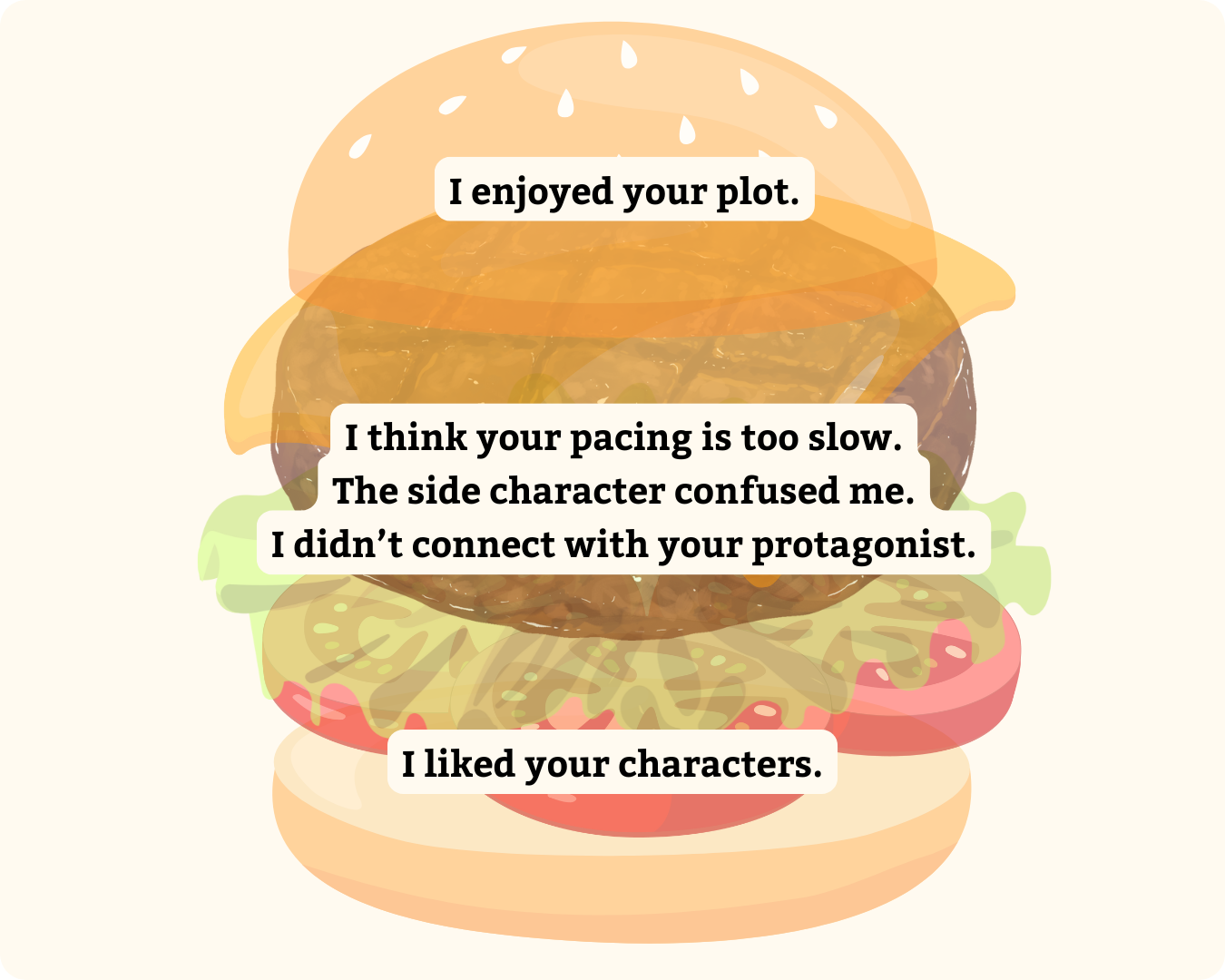Something Everyone Should Know
The art of giving feedback (for everyone, not just writers) + EXAMPLES!
Love it or hate it…feedback isn’t going anywhere.
Feedback in writing (critiques) are part of the bread and butter, but feedback is also exchanged in business or schooling settings—annual reviews, meetings, university peer reviews, you name it.
For some reason, everyone expects you do give feedback without actually teaching you how to give it. Yes, giving feedback is a skill that is learned and doesn’t stop evolving.
Today I hope I can help guide you in a direction that helps you develop your feedback—or constructive criticism—communication skills.
Disclaimer: This is all from the lens of a N. American writer, so someone in S. Korea might disagree with my points because culturally it’s more acceptable to do things a different way. You might also think it’s too fluffy of a way to give feedback. At the end of the day, it’s your choice, but at the very least you’ll have one more opinion to consider.
Scroll ↓↓↓ to the bottom for a summary!
Helpful feedback I’ve received:
I appreciated the long block of feedback because of how it was worded (as an opinion) and why they didn’t find it effective. I disagree with and will be ignoring it, but it was still nicely worded and structured feedbaadsfjsf- add another example- ck.
Unhelpful feedback I’ve received:
For my Pride & Prejudice fans, both of these reminded me of when Darcy spoilers first professes his love to Elizbeth by insulting her and her family. It’s rude and unnecessary.
Let’s get started!
It’s all opinion.
Your feedback is your opinion.
Someone’s feedback to you is their opinion.
Just because you don’t like something doesn’t make it bad, and just because someone else loves something doesn’t make it good.
I don’t like green olives. That doesn’t make them bad. My friend loves Hawaiian pizza. That doesn’t make it good.
Weigh feedback differently.
As an aspiring author, the feedback of someone who’s traditionally published (my aspiration) is going to hold value more than feedback from someone who’s never written.
Even more helpful for me is feedback from a published author who writes and reads my genre. The norms of psychological thrillers as you can imagine are very different than those in romantic comedies. Can you imagine trying to apply the same concepts to the movies Shutter Island as to The Proposal?
I could go over a graphic design major’s resume and check it for grammar mistakes, but I don’t know what’s typical for that field. I would be doing them a disservice if I formatted their resume as I would for an engineering job.
What is the Why?
Why are you giving this particular bit of feedback?
Is it because you don’t like it? (Not a great reason.) Is it because you found it confusing? (This is clearer and more actionable).
Being transparent on the why helps people decide if it’s a comment that should listen to or ignore.
Example:
This is bad feedback to me as it’s an unactionable opinion.
When I asked for clarification on why they found it unsatisfying, this is what they said.
It wasn’t that the end was confusing or that the characters had unsatisfying arcs.
They simply preferred and ending type that I didn’t write. It’s absolutely fine to have this opinion, but telling me that the end is unsatisfying isn’t enough. I thought I had a fixable problem.
In this case, I ignored the critique.
Being honest doesn’t equal being mean
I wish I didn’t have to say this, but as someone who’s been on the receiving end of unkind feedback, it needs to be said.
Not only is unkind feedback unhelpful, but it also puts you in a negative light. Why would I ever want to work with someone who was rude?
However, it’s also unhelpful to be too kind. If you have no critiques, how is someone supposed to learn and grow?
Writing Example:
Engineering Example:
Okay, rude. But why do you think it sucks? If you’re going to be crass, at least be clear. Was it the content, the formatting, the grammar, etc.?
Sometimes something is just bad (but still be nice)
By bad I mean that whatever it is isn’t being communicated as intended.
Now let’s be fair. Sometimes the work we need to provide feedback for is bad. Maybe it’s completely off-topic, factually incorrect, or riddled with so many grammar issues it’s unintelligible.
As I’m sure many of us heard growing up, or something similar, “If you can’t say something nice, don’t say anything.”
If you can’t find anything nice to say, pass on giving feedback or try to dig a little deeper. Maybe it was a character’s name, the formatting, the colour scheme, the word choice, etc.
Context Matters
Situation:
In writing, there are general grammar rules you probably remember from school (e.g. using a comma + conjunction to combine two independent clauses).
In an engineering setting, you probably want to stick them. I would find it unprofessional if I attended a medical gastro-intestinal conference session where the slide said, “He loved eating raw pizza. Eating. Ate. Until he died.” This level of theatrics doesn’t lend credibility to the presentor to me, and I would say this.
In creative writing, the “rules” are more flexible. See Grammar for a more in-depth explanation.
Audience:
Who is the writer writing for?
If the intended audience are pre-school kids, and the writer wrote “The children capered around the caregiver reading the soporific story”, I might suggest that the vocabulary level is too advanced.
What familiarity does the audience have with the topic?
If you’re presenting as a software engineers to other software engineers, you’re probably fine using software jargon. If you’re a software engineering pitching to investors, you might need to simplify your terminology. This was a common problem I saw when I was in entrepreneurship/investing during my university years, and you can probably find a good example on Shark Tank. In writing, I see it come up especially in sci-fi.
Setting (writing):
Where is this taking place? The world of Hobbiton is going to have different vernacular than Dune than modern times.
I once received feedback suggesting I “lowered the reading level.” It was for an adult, Victorian-era set story. I might’ve taken it into consideration, but I didn’t receive any other feedback commenting on issues with my vocabulary.
Using end-all-be-all phrasing
I find it’s better to say “I” than “we” or “us” because you’re only speaking for you, not for everyone.
I don’t know about you, but when I’m told what I “must and musn’t do”, I immediately take up arms and want to double down.
This is similar to fighting. Instead of blaming someone “You never wash the dishes!” it helps to elaborate from your perspective. “It bothers me when you don’t do the dishes because I do the cooking and I feel like you’re not pitching in.”
“You should never use ‘get’.”
Okay, but why? “Because it’s a rule.”
That’s a poor response. Rules are meant to be broken.
Because it makes it hard to read? Because there are stronger verbs? Now we’re getting somewhere.
“I think ‘get’ could be replaced with a stronger verb.”
“She got the magic wand.” Earned? Stole? Acquired? Found? Retrieved? Of course, context matters, but to me, these all make the sentence more interesting and engaging.
English as an international language
What’s common slang in the UK might be very different in Australia. English is an official language of Singapore, but you can bet that they have different slang than in the US. Because of my Canadian upbringing I prefer spelling words the British way. A weird amount of people assume I’m British (not Canadian) and that don’t understand American words. I find it interesting, but also offensive. Please don’t need to tell me what the definition/usage of a word is—yes, this has happened.
Be wary of humour/sarcasm
In my experience, it’s best if you don’t, especially if you’re only providing written feedback. So much gets lost without visual or verbal communication/tonal inflection.
Maybe you’re a huge Parks and Recs fan. I’ve never seen a full episode. The humour just isn’t my style, so I won’t understand a reference even if it’s considered pop culture. British humour would also probably fly right over my head.
Per the example, now I’m left thinking I gave you a compliment and you’re left disliking me because you think I hate you because we come from different backgrounds and experiences.
Using shorthand/shortform/abbreviations/acronyms
Please use it sparingly or spell it out the first time. We’re not all from the same generation, and we’re not all from the same language background. I like using “b/c” for “because” when I text, but I wouldn’t use it in a professional setting. e.g. “apt” is either the word “apt” or it’s short for “apartment”.
If you want to use an acronym, spelling it out the first time helps clear up and confusions. All the Promises We Cannot Keep is wordy, so if I want to refer to it as an acronym, I would write it as “blah blah blah All the Promises We Cannot Keep (ATPWCK) blah blah blah.”
If you’re talking amongst people all from the same field, you’re probably safe to use the jargon.
IYKYK (if you know you know) is a personal gripe; I can never remember what it stands for.
Look it up if you don’t know. We have the internet.
I’m currently reading Maurice, a book that was written in 1913-1914s England. The author used the phrase “her hair etc. was ripping”, and in the context, this was a compliment. I only know “ripping” to be a synonym for “tearing”, so I searched the term. It’s chiefly British and means “delightful”.
Another word was “fens”, which is apparently a type of wetland, but it could’ve been chiefly British out an obsolete form of English.
If you’re unsure, please look it up as it’s unhelpful if you point out words that are unfamiliar to you vs. words you think are being used incorrectly.
Please tell me what a “corset like a wasp” means.
All this indicates to me is that now I need to take the rest of your critiques with a heap of salt.
The compliment sandwich (and other methods of delivery)
Just because you wouldn’t mind SOMEONE TELLING YOU IN SCREAMY CAPS doesn’t mean someone else doesn’t mind.
When in doubt, or when possible, just ask if they have a preferred method of receiving feedback.
If you’d be offended or if you’d be offended for your friend (because often we put up with more than we’d let a friend put up with) then don’t say it (that way).
Sandwich Method
From my experience. most people don’t mind the compliment sandwich. This works for any critiques. Sandwich negative feedback between positive compliments or aspects you liiked.
Miscellaneous Tips
Don’t make assumptions about someone’s skill / experience level.
I read a story where it seemed like the writer was newer to the craft or that perhaps English wasn’t their first language. Me pointing out my assumption doesn’t help them, it’s just a bit insensitive. Instead, I pointed out where the areas were that I felt needed improvement.
If / when you feel your temperature rising, take a breath and step away.
If multiple people are saying the same thing, it might be time to listen.
Some people are just dense or skimmed your work. I had two people tell me a part confused them on whether or not someone had died. I'm pretty sure that's not a me problem at that point.
But if the same point is brought up by multiple people, it’s probably worth paying attention to.
If you’re unsure, ask for clarification (when possible).
Be polite; don’t burn down bridges.
Be open to learning and changing!
Develop a thick skin.
If after all this you realize you’ve given horrible feedback, it’s okay. I’m not guiltless. Apologize if you can, then move on knowing more.
Summary
Click image to enlarge!
Blog thumbnail: Obertraun, Austria

